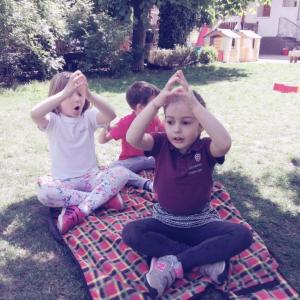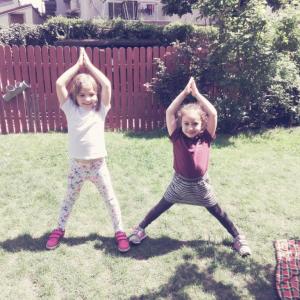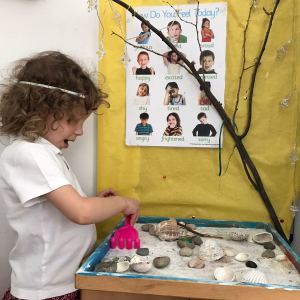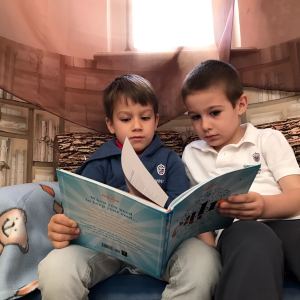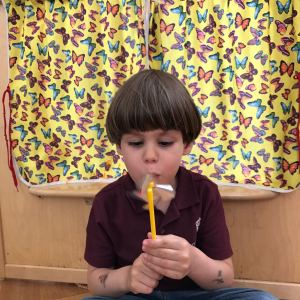Relaxation and meditation techniques that are more popular among adults have also been introduced to children through various educational programs to help them better develop their self-awareness and focus.
Mindfulness is an ancient concept rooted in meditation. It was widely introduced at the end of the 1970s by Jon Kabat-Zinn, an American physician who developed mindfulness trials for patients who were experiencing all sorts of physical and mental disorders and it has become very popular in the past 20 years, among the general population.
In Romania, the concept of mindfulness in early education was introduced through the curriculum of pre schools and private schools. Among those who have aligned with the trends, Acorns Nursery proposes a current and refined selection of mindfulness exercises such as:
- Miniature Zen Garden – a relaxing Japanese game of using rakes to create patterns
- Yoga for children – light yoga exercises that are practiced outside
- Listening to the sounds of certain objects that help to improve the power of concentration
- Breathing and body awareness exercises recommended for relaxation and positive energy.
Science has shown that mindfulness exercises can help children against the effects of stress, anxiety, depression, disease and pain, alleviation of autism symptoms and ADHD, improving performance and social relationships and expanding the ability to experience positive emotions. Mindfulness practice manifests naturally in children and babies. They can smell flowers and look at ladybirds without being distracted by other thoughts. As we age and the activity of the brain grows, it becomes increasingly difficult for us to remain anchored in the present moment.
Mindfulness is actually about awareness. It’s about being aware of our thoughts, surroundings, emotions and the way we feel physically. It is a powerful mental ability that can help us get through a stressful situation or release the daily anxiety. It is an abstract concept, but an important concept. And there are many ways to learn the mind through play, especially through sensory activities, says Raluca Cimpoiaşu, Rainbows group coordinator at Acorns Nursery, Bucharest.
A child who practices mindfulness techniques becomes the agent of his own change, starting from the perception of a positive, calm and upbeat self, and growing up towards being a balanced adult who helps build a better society.
Sensory play can be anything that implies the sense of vision, smell, sound, taste, touch, and even inner emotions and physical movements. Thoughtfulness-based teaching exercises provide children with mind-relaxing strategies and opportunities for attention and successful concentration, as well as a much quieter sleep.
A regular and conscious practice will ensure the consolidation of existing neural connections and the consolidation of new neural connections.

